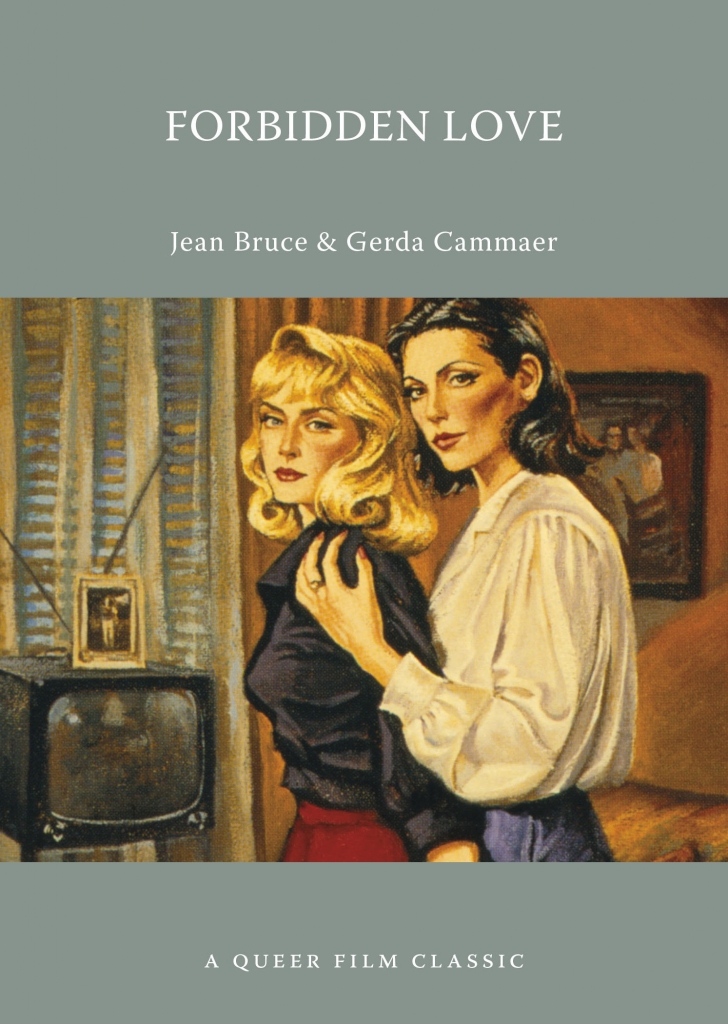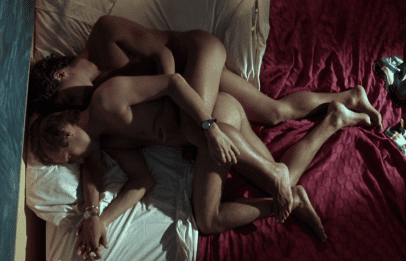“We need to make books cool again,” filmmaker John Waters has famously said. “If you go home with somebody and they don’t have books, don’t fuck them.” He later added, however, that DVD collections had become “the new bookshelves.” If you do go home with somebody, you could learn as much about them from their discs as you once did from their books.
I’ve never believed there’s that big a gap, though, between book lovers and film lovers. The library instinct is much the same and while a great film and a great novel offer very different experiences, a life lived without one or the other is diminished. That’s why the creation of the Queer Film Classics series by Concordia University film professors Thomas Waugh and Matthew Hays has been a great gift for readers and movie buffs alike.
Beginning in 2009, these small paperback books (about the same size as a Blu-ray case, how convenient!) have each championed a great queer film like Pedro Almodovar’s Law of Desire or Chen Kaige’s Farewell, My Concubine. There have been 14 published so far, with the latest volume on Lynn Fernie and Aerlyn Weissman’s Forbidden Love: The Unashamed Stories of Lesbian Lives being launched this month.
 To begin their series, Hays says, “We put out a call for people to pitch writing a book on their favourite queer film, one they considered to be classic. Then we had to choose. That was worse than Sophie’s Choice! We had such a broad range of pitches, most of them quite unusual and brilliant. We ended up choosing a finite number of books. We only have a few left and then the series will be done.”
To begin their series, Hays says, “We put out a call for people to pitch writing a book on their favourite queer film, one they considered to be classic. Then we had to choose. That was worse than Sophie’s Choice! We had such a broad range of pitches, most of them quite unusual and brilliant. We ended up choosing a finite number of books. We only have a few left and then the series will be done.”
Waugh told the Concordia University magazine a couple years ago that he’d been inspired by the British Film Institute’s successful series of books on classic film, “but I felt they were giving short shrift to queer cinema, especially in the light of the effulgence of new queer cinema in the 1990s.” The Queer Film Classics has matched groundbreaking films with insightful authors and is especially valuable for its coverage of queer Canadian films, like I’ve Heard the Mermaids Singing, C.R.A.Z.Y. and Zero Patience.
“I was thrilled with Will Aitken’s book on Death in Venice,” Hays says, “and also loved Marcus Hildebrandt’s Paris is Burning. But at the risk of sounding smug, they are all damn fine books.” Unable to choose a favourite Queer Classic book, does Hays have a favourite film?
“That’s always tough to choose,” he says, “but I have a huge obsession with the work of John Waters. I begged my publishers at Arsenal Pulp Press to pay the fee so we could put the image of Divine from Pink Flamingos on the cover of my book [the terrific The View from Here: Conversations with Gay and Lesbian Filmmakers]. Next year, we have a book coming out on Female Trouble, so I’m looking forward to that.”
It’s a series that the late film historian Vito Russo would have loved. While the fact that both the book and movie versions of his classic study of homosexuality on film, The Celluloid Closet, are out of print is an utter crime (the film is clinging to life on YouTube below), this series from Waugh and Hays and their authors keeps his passion for queer film alive.
(The latest Queer Film Classic, Forbidden Love, launch
Monday, Dec 7, 2015, 7pm
Concordia University, 7141 Rue Sherbrooke O, Montréal
Wednesday, Dec 9, 2015, 7pm
Gladstone Hotel, 1214 Queen St W, Toronto


 Why you can trust Xtra
Why you can trust Xtra


